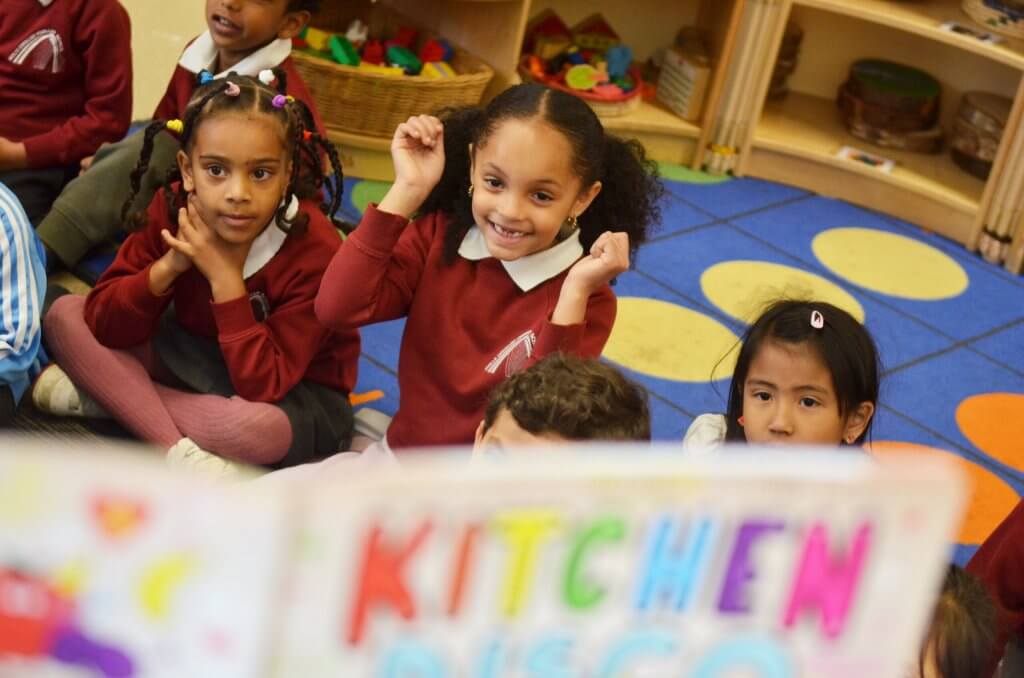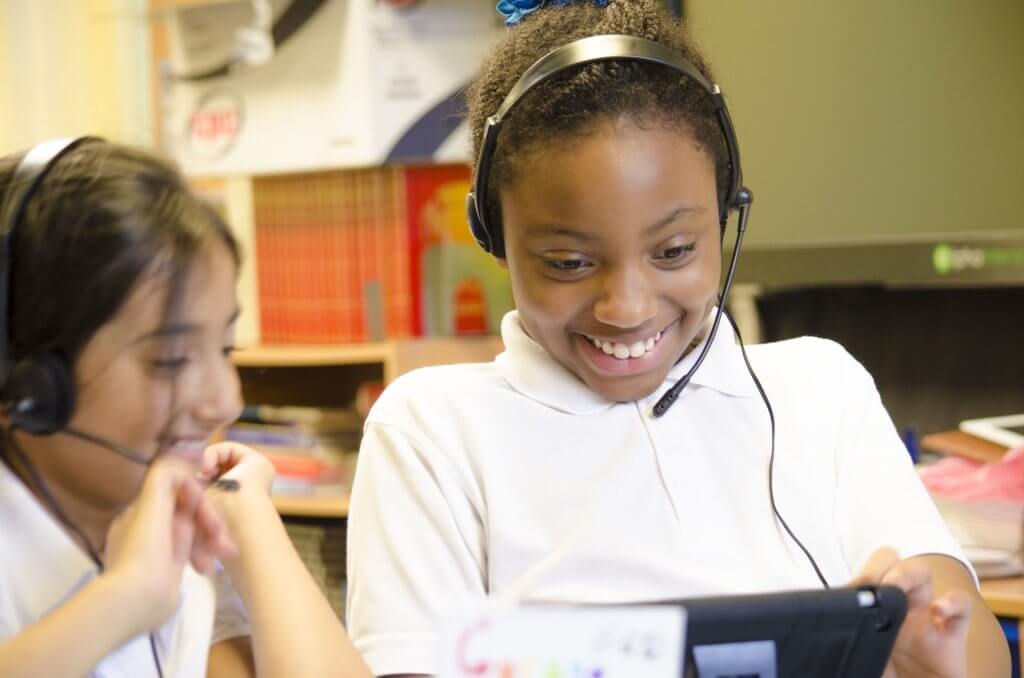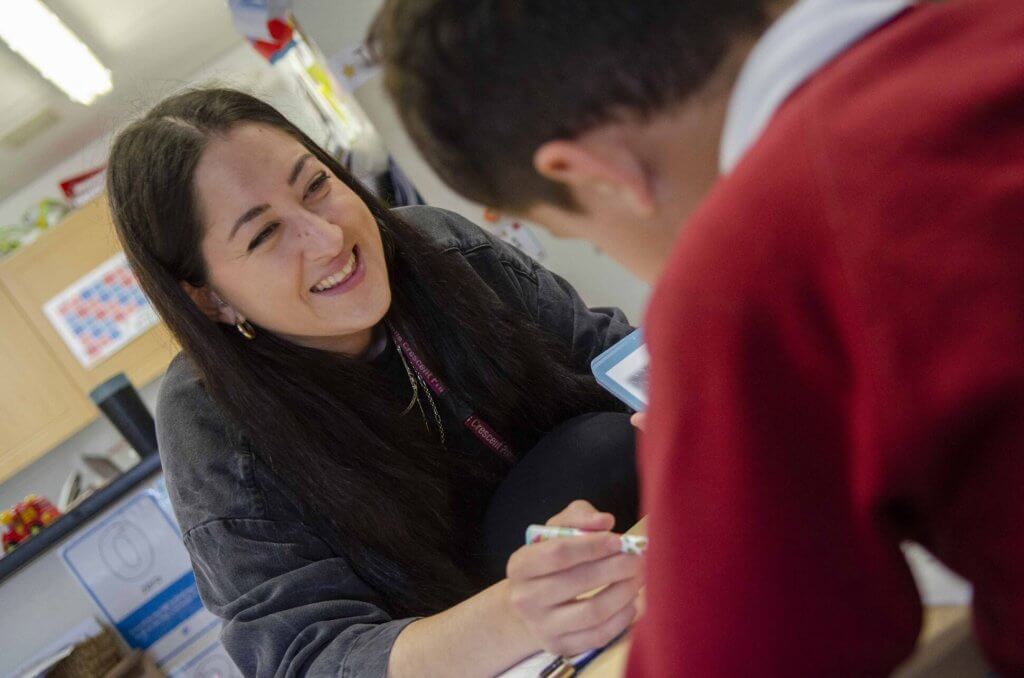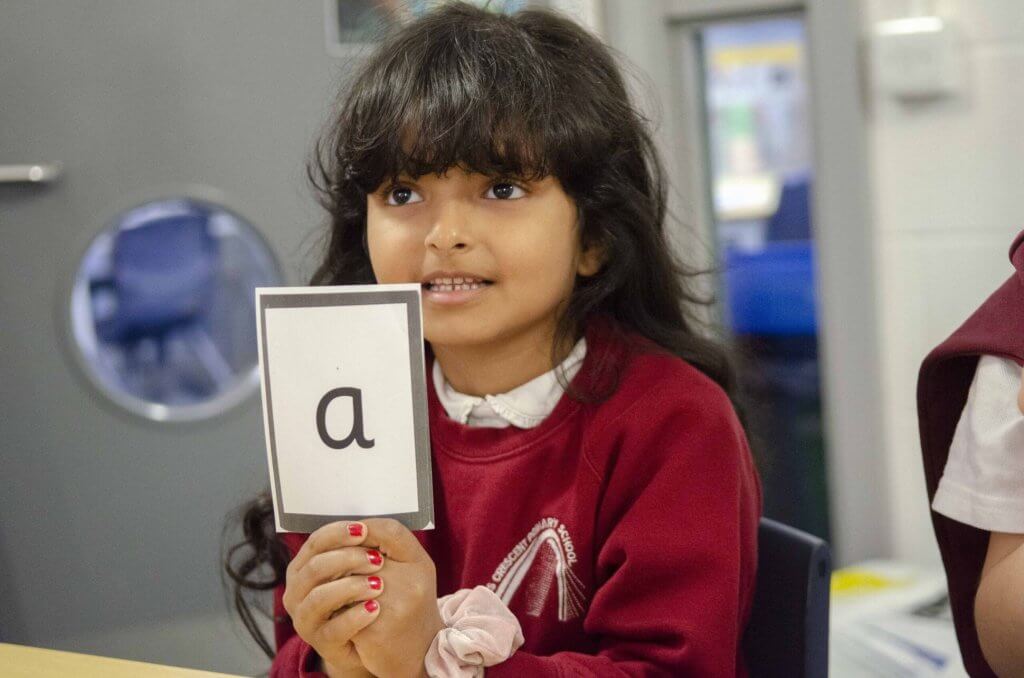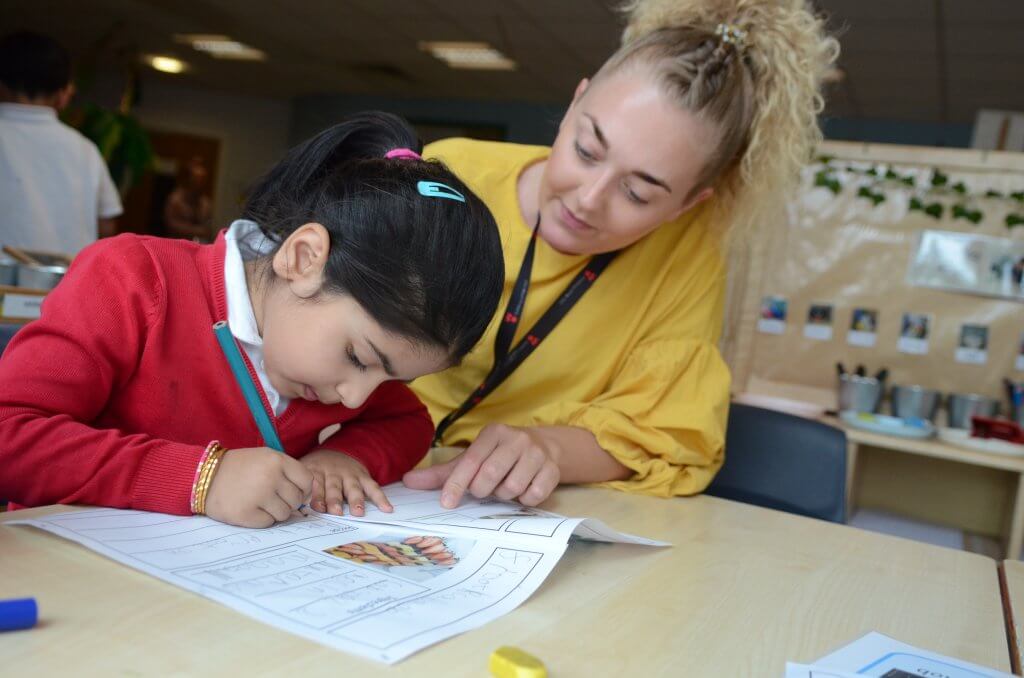This week brought the publication of the Department for Education’s White Paper entitled ‘Opportunity for All.” It’s vision has been explained by the Secretary of State for Education, the Rt Hon. Nadim Zahawi, as, “…to introduce and implement standards that will improve children’s education, deliver the right support if they fall behind and give them the tools to lead a happy, fulfilled and successful life.” The White Paper aims to build on current strengths, extending good practice across the sector whilst also reforming key areas and tackling core issues.
One of the main ambitions, and the one which will be used primarily to judge the impact of reforms, is a significant increase in the number of pupils reaching the expected standard at primary and secondary level. By 2030, the government aims for 90% of primary children to achieve the expected standard in reading, writing and maths combined. For children living in the worst performing regions – the new Priority Education Investment Areas – the ambition is for the percentage of children meeting the expected standard across the three subjects to have increased by a third. This aspiration also continues into secondary, with the goal of an increase in the national GCSE average grade in English Language and in Maths from 4.5 to 5.
So how does the White Paper outline the support schools will be given to get there? What does it mean for your school in terms of teaching and learning? Throughout this blog we have posed questions for you to consider as a starting point for thinking about the White Paper – though there will be many more questions you will want to ask and consider!
Teachers and leaders will receive additional development opportunities following a ‘golden thread’ of support.
The White Paper has announced that by 2024, 500,000 teacher training and development opportunities will be created to form a ‘golden thread’ of high-quality support. These opportunities are to be delivered through Initial Teacher Training, the Early Career Framework and the reformed fully-funded NPQs, including the new Leading Literacy NPQ. Consultations will also be held on replacing the National Award in SEN with a leadership level SENCO NPQ as part of the SEND Review published this week. The Early Years sector will also benefit from an investment of up to £180 million to strengthen teacher quality, with a particular focus on developing early language, as well as extended professional development opportunities and a commitment to increase the number of Level 3 trained practitioners.
Every qualification following this golden thread will be underpinned by research backed by the Education Endowment Foundation, with frameworks updated in line with new evidence. In addition, the development of the new Institute of Teaching aims to further strengthen CPD, including giving teachers the opportunity to study academic programmes and providing training for new National Leaders of Education.
Have any of your staff accessed the fully-funded NPQs? How have they impacted practice? If they have not yet accessed NPQs is this something that you would consider? Why/Why not?
A focus on recruiting and retaining teachers, particularly where they are needed most.
As well as the much-publicised £30,000 starting salary for teachers and planned pay rises across the sector, the White Paper also sets out the way forward for improving staff retention. All schools are encouraged to sign up to the Education Staff Wellbeing Charter, “to build a shared commitment to promoting staff wellbeing,” and implement flexible working.
Have you signed up to the Education Staff Wellbeing Charter or are you working towards any other wellbeing focused initiatives such as the OneWellbeing Award?
The paper acknowledges that recruitment and retention are particularly challenging in more disadvantaged areas and sets out a number of ideas to improve this picture across the secondary sector. Alongside the already-announced Levelling-Up Premium, a new scholarship for language graduates and a new ITT course designed to support engineers to teach Physics, are both planned. There will also be extended opportunities for internship, allowing people to test the waters of teaching before committing to the profession, whilst bursaries and a new relocation premium are intended to encourage international trainees to apply.
Have you considered retention and recruitment within your school? Do you offer or have you considered flexible working for your staff?
A broad, ambitious and knowledge-rich curriculum
“By 2030, from early years onwards, all children will be taught a broad, ambitious, knowledge rich curriculum and have access to high-quality extra-curricular provision.”
Central to the Department for Education’s strategy is the creation of a new arms-length curriculum body, born out of the Oak National Academy. Working with teachers from across the country, the body will “…co-design, create and continually improve packages of optional, free, adaptable digital curriculum resources and video lessons that are effectively sequenced to help teachers deliver an evidence-based, high-quality curriculum.” Aimed at reducing workload, whilst also ensuring every child has access to high-quality resources, the body will work alongside the EEF and Ofsted to ensure its approach is backed by the best available evidence.
Do your staff use the Oak National Academy resources now that we are out of lockdown? How are they used? If you do not use Oak National Academy resources what is the reason for not using these and what other ways, in relation to planning, do you reduce workload for your staff?
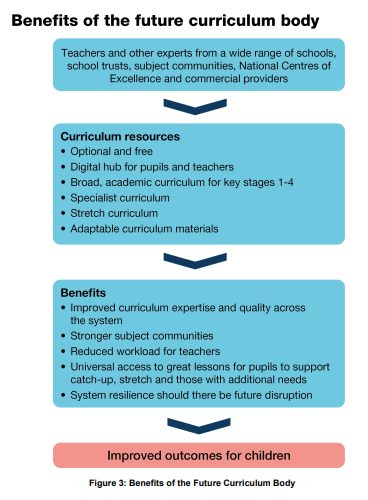
In addition to the new curriculum body, the White Paper also sets out the requirement that all state-funded mainstream schools ensure that they are open for at least 32.5 hours of compulsory education per week, by September 2023. This is intended as a minimum expectation, with the DfE stating “Considering the wider benefits of increased time for pupils, including more opportunities for learning, socialisation with peers and enrichment, we will also encourage all mainstream state-funded schools to explore going further than 32.5 hours if possible.” Further guidance and case studies focused on this will be published in the summer, however an information note has been published here. Specialist settings will not be required to fulfil the planned 32.5 hour week; however, they are encouraged to look into doing so if possible, taking into account financial and operational considerations.
How many hours a week is your school currently open? If you already reach 32.5 hours per week, would you consider extending your hours? How feasible is it?
Within the guidance, it is also emphasised that all children should take part in sport, music and other cultural opportunities, with plans to support this being published later in 2022 and in 2023. To support this further, the paper explains that there will be support for the National Youth Guarantee, the Duke of Edinburgh award, Cadet schemes and the promotion of voluntary work. There will also be a focus on improving careers education, with a new careers programme being developed for primary schools in areas of disadvantage, as well as increased CPD for teachers and an extension to the legal requirement for schools to provide independent career advice.
What opportunities do you already provide in school? How do you support careers education in school at the moment?
Curriculum and Assessment Reforms to be Embedded.
Another key aspect of the White Paper is the focus on embedding previously introduced reforms. To support stability and improvement, the paper makes it clear that there will be no changes to the National Curriculum for the remainder of the Parliament. The impact of recent reforms to the EYFS is expected to be assessed, however, perhaps leading to identifying “…ways to go further in ensuring children are prepared for key stage 1, recognising the critical role of early language development in building strong foundations for literacy and numeracy.” The paper does set out the intention for the second part of the Reading Framework to be published in 2023.
What are your thoughts on the EYFS reforms and the considerations of building foundations in EYFS for Literacy and Numeracy in Key Stage One?
Have you read our article on the Reading Framework? How is your school implementing this? Are you doing anything else to support Reading across the school, such as our One Education Reading Award?
Across the sector, the English and Maths hubs are continuing to support schools in improving standards, with the EEF and the new arms-length curriculum body ensuring quality and consistency in the practices the hubs promote.. Meanwhile, the report sets out a commitment to improving student uptake of Ebacc subjects, particularly in terms of language teaching, establishing a network of MFL hubs and CPD for language teachers. Though assessments at primary and secondary are also to be maintained, the report does reiterate Ofqual’s ambition that GCSE and A level results should return to be in line with those in pre-pandemic years by 2023. One new addition is in the form of a sample reference test for Year 9 students to build an understanding of national performance in literacy and numeracy. This digital assessment will be taken by a sample of children in school, with no date set yet for its introduction.
Do you use support from English and Maths hubs already? Why or Why not?
The Parent Pledge
A core focus of the White Paper is the impact on children and families, particularly the Parent Pledge. This promise states that “…any child that falls behind in English or maths should receive timely and evidence-based support to enable them to reach their potential. We pledge to make that a reality in every school in the country. We pledge to ensure that schools communicate this work to parents, ensuring parents are fully engaged in their child’s education – and relieving them of the worry and stress that comes from a child falling behind at school.”
How do you support your children currently if they are falling behind in English or Maths?
How do you ensure parents are fully informed and engaged in their child’s education?
Focusing on learning in English and Maths, the White Paper outlines that all schools will be expected to “…use robust, reliable assessment to identify children who need extra help, and offer targeted, evidence-based support to these children.” Working with Ofsted, the Department for Education will provide further guidance on targeted support and assessment, including how these link to the plans of the SEND review, and gathering good examples of schools providing successful targeted support alongside teaching. This will continue to feed into Ofsted inspections, with all schools to be inspected on the new framework by the end of the Summer term in 2025 to help gauge recovery from the pandemic.
How do you currently identify children who need extra help?
How quickly does this happen? What is the impact of the targeted support you offer?
The paper also outlines the importance of the effective use of the Pupil Premium for delivery the Parent Pledge. Working alongside the EEF, the DfE will develop “…a menu of recommended evidence-based approaches,” to support schools to make decisions about spending their Pupil Premium allocation, and make it easier for schools to use it to support literacy and numeracy skills.
What do you use your Pupil Premium money on?
How effective is this?
Tutoring to be Embedded in Every School
Developed in response to the COVID-19 pandemic, the National Tutoring Programme is expected to continue to blossom over the next years as a central part of government strategy. The White Paper shares the DfE’s ambition that every school will use tutoring to support those pupils that need it most, with up to 6 million tutoring packages being delivered by 2024. Schools will continue to be financially incentivised to provide tutoring, with an expectation that all schools make it available to children who need it, using the flexibility offered by the programme to decide how this looks in each setting. From 2024, tutoring will be expected to continue to be “a staple offer from schools” with the expectation that core budgets, including Pupil Premium, be used to fund this targeted support.
How many children access tutoring in your school now? Have you got plans to extend this in the future?
EEF to be Re-endowed to Provide Ongoing Support
Building on the EEF’s great work in developing evidence-based practice, the White Paper commits to re-endowing the organisation with at least £100m to enable it to continue to provide accessible guidance and support over the next decade. The aim is for the EEF to_ “…act as a ‘guardian of evidence’ to ground education policy in the very best evidence_”, linking to the ‘golden thread’ of teacher development discussed earlier. Furthermore, there is also a commitment to develop the EEF further, with the DfE providing over £55 million to develop and scale up the best-evidence literacy and numeracy interventions across the country, supporting schools to access further targeted development and training.
How do you use the EEF currently? Could you develop your use of EEF further?
Remote Learning to Continue to be Offered
Schools made great strides during the pandemic in their use of technology, particularly to support remote learning, but also in other ways such as online parents’ evenings. The White Paper makes it clear that these innovations have “…worked for parents, children and schools and are here to stay.” However, crucially, the White Paper also commits to the idea of remote learning continuing to be used in all schools more widely. Instead of a pandemic problem solver, the paper sees remote education as becoming the norm for children to keep up when in-person attendance is impossible.
Have you considered how you could use any element of remote education outside of the pandemic?
What’s Next?
We know a report on this scale and with this scope can be overwhelming, but we hope this summary has supported you to consider the implications for your school in terms of teaching and learning. In reality, this just scratches the surface, as the White Paper explores many other areas such as admissions, attendance, behaviour and much more.
To find out more, why not consider booking a place on our SLT Network with Jo Gray, Head of School Development, on the 20th May. To find out more please visit here.
If you have any questions, want school development support or want to share the fantastic work that you are already doing then please do not hesitate to get in touch by emailing jo.gray@oneeducation.co.uk

